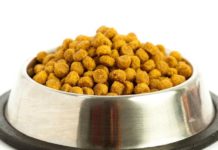
Those big brown eyes look up at you longingly, willing your hand to break off a piece of your sandwich to share and no matter how hard to strive to ignore that yearning plea, it is impossible. Against your better judgment, you tear off a piece and give it to your beloved pet. You always share your food with canine companion and he knows exactly how to get you to give in! It cant hurt him, can it?
Although the physiology of humans and dogs have many similarities, the sometimes invisible differences are significant enough that many of the foods we enjoy and that are beneficial to us are lethal to our four-legged companions! Often food that is toxic to dogs includes things we enjoy, consider treats, and generally tolerate with ease such as chocolate, coffee, garlic and raisins yet they cause nothing but grief for you dog.
Food that is Toxic to Dogs
- Alcoholic beverages causes intoxication leading to coma and even death.
- Baby food and prepackaged food can contain garlic or onion powder (see below). Always read ingredients before serving.
- Chocolate contains theobromine, a chemical that adversely affects kidneys, heart, and lungs and attacks the central nervous system. The toxic dose depends on the purity of the chocolate so semi-sweet dark chocolate is far more toxic then milk chocolate. Symptoms of chocolate toxicity includes excitement or hyperactivity, muscle tremors, seizures, vomiting, abnormal heart rate/rhythm, diarrhea, wobbly gait, hyperthermia, coma, and death.
- Caffeine caffeine and theobromine in chocolate are similar. Caffeine attacks the kidneys, heart, liver and lungs when ingested by a dog and adversely affects the central nervous system. Symptoms of caffeine poisoning in dogs includes restlessness, hyperactivity, vomiting, panting, weakness, wobbly gait, muscle tremors and convulsions, leading to death.
- Onions and garlic this includes all members of the Allium family though yellow, white and red onions are the most toxic to dogs. Onions have a cumulative effect on dogs so although a small amount now and then will not hurt your dog, the same small amount each day is just as lethal as a large amount given at one time. Onions cause a type of hemolytic anemia called Heinz body anemia that causes the destruction of red blood cells. Kidney damage follows as well. Symptoms mimic other types of anemia and include pale gums, rapid heart rate, lethargy, weakness, vomiting, diarrhea, and bloody urine.
- Grapes and raisins grape toxicity in dogs is a relatively new discovery and not fully understood at this time. Grape toxicity causes irreversible damage to the kidneys, with death being a possibility. For a 20 pound dog, 4 to 5 grapes is considered a toxic level although an exact dose is not known. Symptoms of grape toxicity include inappetance, vomiting, diarrhea, and abdominal pain, decreased urine production leading to complete lack of urine production, weakness, and wobbly gait. Symptoms develop within 24 hours or as quickly as a few hours depending on the dog.
- Macadamia nuts not a lethal addition to the list of food that is toxic to dogs but they do cause a significant amount of discomfort and severe illness so worth mentioning. The actual toxin or why they are toxic to dogs is unknown but a small handful cause vomiting, weakness, depression, wobbly gait, joint/muscle pain, and joint swelling. Symptoms usually begin within six and twenty-four hours and the dog should be close to recovery within a day or two.
- Xylitol this sugar-free sweetener is a good example of how human and canine physiology are different. In dogs, as little as two pieces of sugar-free gum containing xylitol can cause the pancreas to secrete insulin, lowering blood sugar levels while a package can cause liver damage. Symptoms develop within 30 to 60 minutes and include weakness, wobbly gait, collapse, and seizures.
- Yeast Dough dogs love warm, raw dough but the uncooked yeast produces ethanol with toxic effects! Symptoms include lethargy, depression, weakness, wobbly gait and hypothermia. Ethanol absorbs quickly so medical treatment must be quick!
Other foods toxic to dogs include fruit pits, moldy or rotten food, high fat foods, cooked or splintered bones, tomatoes, unripe potatoes, mushrooms avocado, dairy products and nutmeg.
What to do when your Dog Eats something Toxic
Treatment for animal poisonings is toxin dependent and it is necessary to get him to your veterinarian as quickly as possible. If you know what your pet ingested, bring what is left of the item, the packaging, and any other bits that may help your vet. If you do not know what he ate, concisely explain to your vet where your dog has been over the last 24 hours so that a hypothesis can be made from his movements (i.e. if he was hanging out in the garage with you while you worked on your car, he could have gotten into coolant). Never treat your dog yourself unless there is no way you can get to your veterinarian in under a few hours but always call your veterinarian for instructions.
Keep in mind that dogs are generally much smaller then humans so what can seem like a small bite to you could be nearly a meal to your pet. Keep track of what it is your pet eats and always watch them when off-lead.





